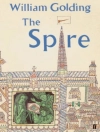In ‘Mistress and Maid, ‘ Dinah Maria Mulock Craik intricately explores the nuances of class and gender relationships in Victorian England. Through the intertwining lives of its titular characters, the book offers a rich tapestry of social commentary, portraying the struggles and intimacies between women of differing societal standings. Craik’s prose is meticulously crafted, blending lyrical descriptions with sharp dialogue that reflects the era’s moral complexities, while her characters embody the turbulent era of reform and the evolving dynamics of female identity. This novel not only serves as a poignant critique of class disparity but also delves into the emotional landscapes of its characters, providing a vivid portrayal of their inner conflicts and aspirations. Dinah Maria Mulock Craik, an influential Victorian novelist and poet, was known for her keen observations of social issues and her advocacy for women’s rights. Raised in a family of modest means, Craik’s own experiences informed her portrayal of servant-master relationships and the capacity for agency within constrained societal roles. Throughout her career, she championed the importance of education and empowerment for women, which is palpably reflected in the struggles of her protagonists in ‘Mistress and Maid.’ This compelling novel is a must-read for anyone interested in Victorian literature, gender studies, or social history. Craik’s nuanced characters and insightful commentary pave the way for discussions about class and identity that resonate to this day. Readers will find themselves engrossed in a world where personal growth and moral dilemmas are intricately linked, making it a timeless exploration of the human condition.
Об авторе
Dinah Maria Mulock Craik, an eminent figure in Victorian literature, was born on April 20, 1826, in Staffordshire, England. Often publishing under the name Miss Mulock or Mrs. Craik, she became widely renowned for her contribution to children’s literature and novels that explored themes of social reform and women’s roles in society. One example of her compelling work is ‘Mistress and Maid’ (1863), a narrative that delves into the dynamics and emotional complexities between women of different social standings and exemplifies Craik’s keen interest in the social issues of her time. Her literary style often combined a didactic tone with engaging storytelling, making her work popular among a diverse readership. Craik’s most celebrated novel, ‘John Halifax, Gentleman’ (1856), stands testament to her narrative skill and her dedication to portraying moral integrity and domestic harmony. As a social commentator through her fiction, Craik contributed significantly to the understanding and evolution of women’s rights and social justice in the 19th century. She continued to write and publish extensively up until her death on October 12, 1887. Her vast body of work continues to be analyzed and appreciated for its cultural and historical value.












